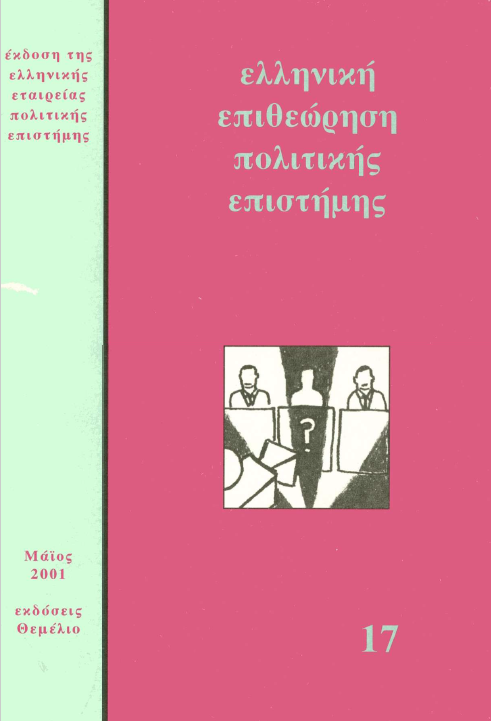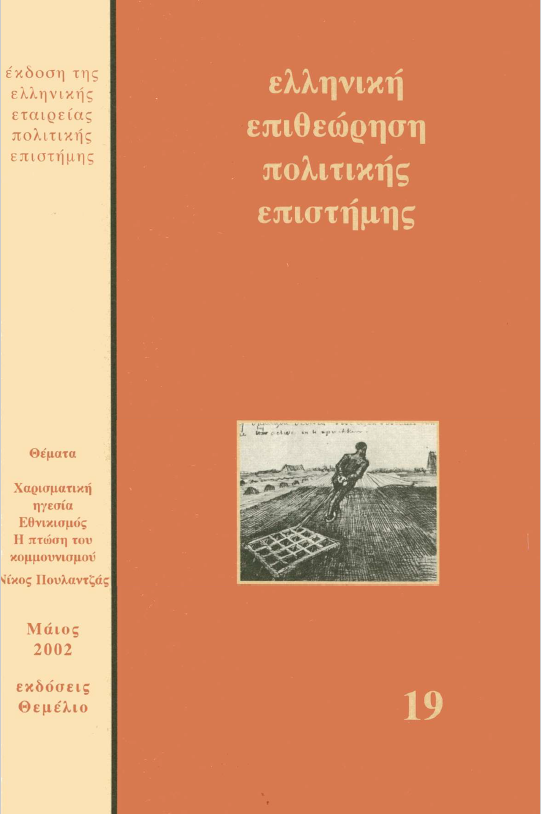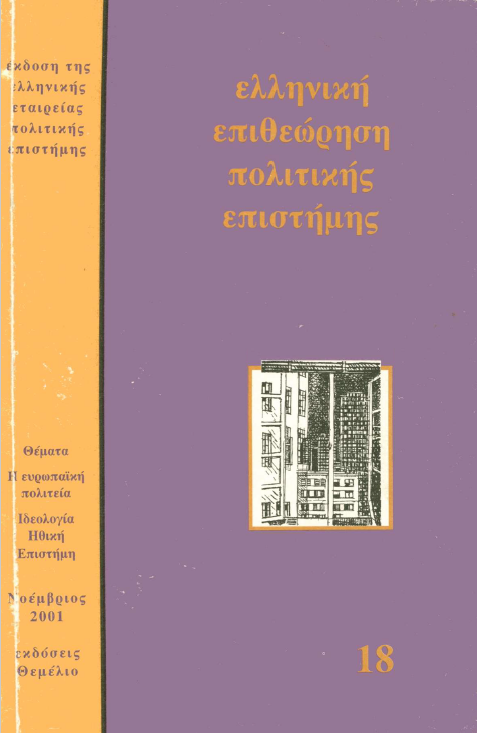Party system and political competition in Greece, 1981-2001
Abstract
This paper seeks to revise the hitherto prevalent perception that the party system established in Greece after the breakdown of dictatorship is characterized by, first, continuity from the pre-1967 period, and, second, limited but polarized pluralism. The new claim is that the party system that was shaped particularly after the critical 1981 elections is an entirely new one, which, moreover, serves as a paradigmatic case of (non-polarized) two-partyism. The first part of the article develops around a critical assessment of the established perceptions at three distinct levels - empirical, theoretical and methodological. The second part includes a counting of the relevant political parties utilizing, but also further building upon Sartori’s “counting rules.” This exercise yields only two significant political parties, PASOK and ND, which supports the initial hypothesis of a two-party system. In the third part, the discussion shifts on the characteristics of political competition in such a two-party system. Among the major findings is the significant and continuous decline of political polarization in modern Greek politics, which becomes evident especially in three areas: (a) the convergence of the two relevant parties in both ideological stance and proposed policies; (b) the contraction of the ideological competition space; and (c) the voters’ attitudes, which are becoming increasingly non-participatory, and characterized by lack of interest in current political affairs and growing cynicism.
Article Details
- How to Cite
-
Παππάς Τ. Σ. (2017). Party system and political competition in Greece, 1981-2001. Greek Political Science Review, 17, 71–102. https://doi.org/10.12681/hpsa.15195
- Section
- Articles

This work is licensed under a Creative Commons Attribution-NonCommercial-ShareAlike 4.0 International License.
Authors who publish with this journal agree to the following terms:
Authors retain copyright and grant the journal right of first publication with the work simultaneously licensed under a Creative Commons Attribution licence that allows others to share the work with an acknowledgement of the work's authorship and initial publication in this journal.
Authors are able to enter into separate, additional contractual arrangements for the non-exclusive distribution of the journal's published version of the work (e.g. post it to an institutional repository or publish it in a book), with an acknowledgement of its initial publication in this journal.
Authors are permitted and encouraged to post their work online (preferably in institutional repositories or on their website) prior to and during the submission process, as it can lead to productive exchanges, as well as earlier and greater citation of published work (See The Effect of Open Access).





